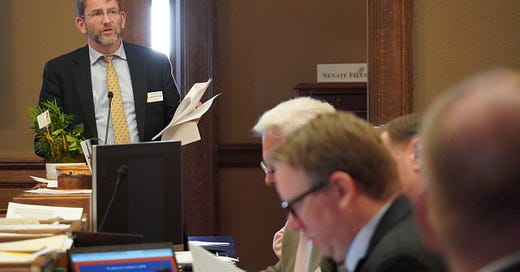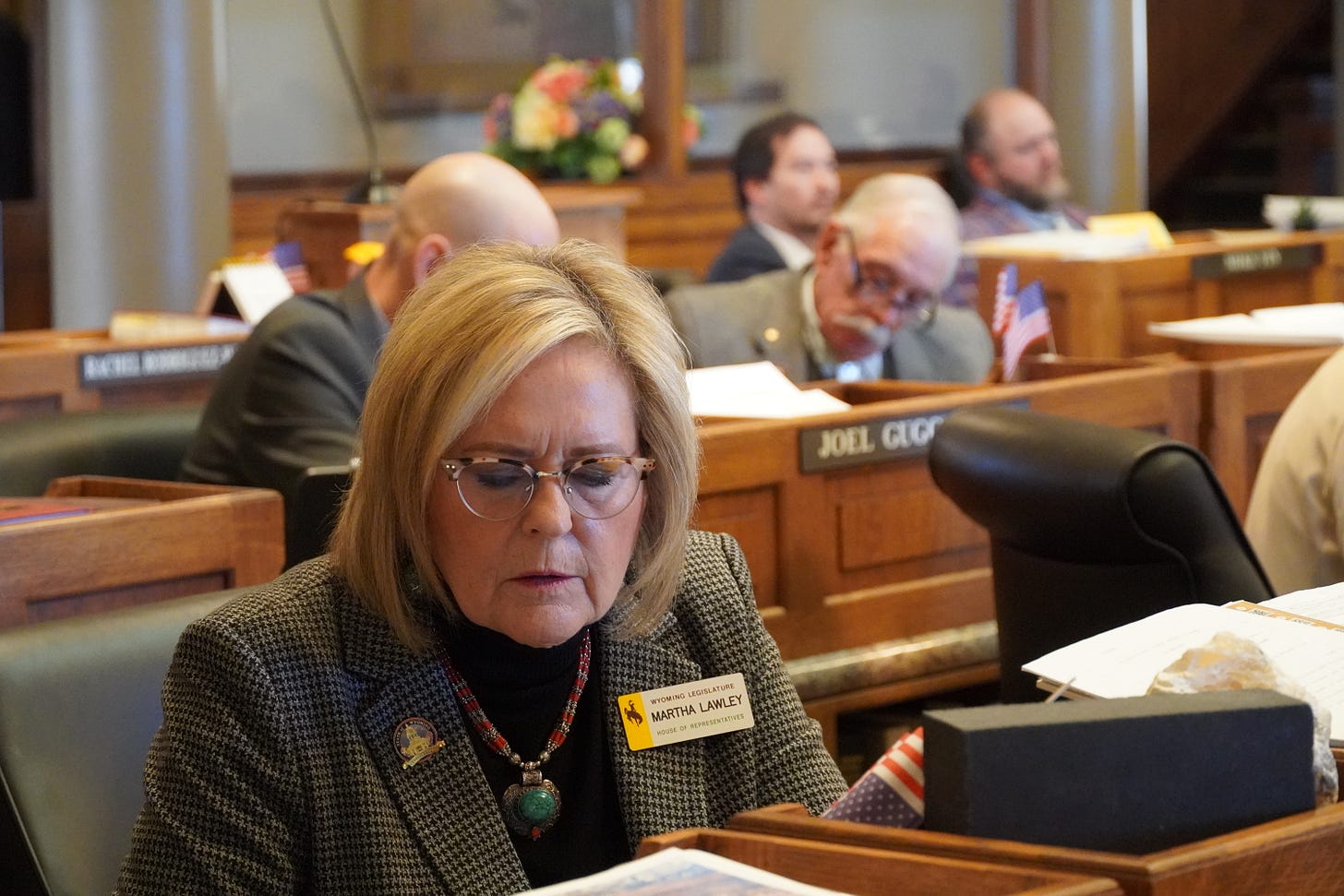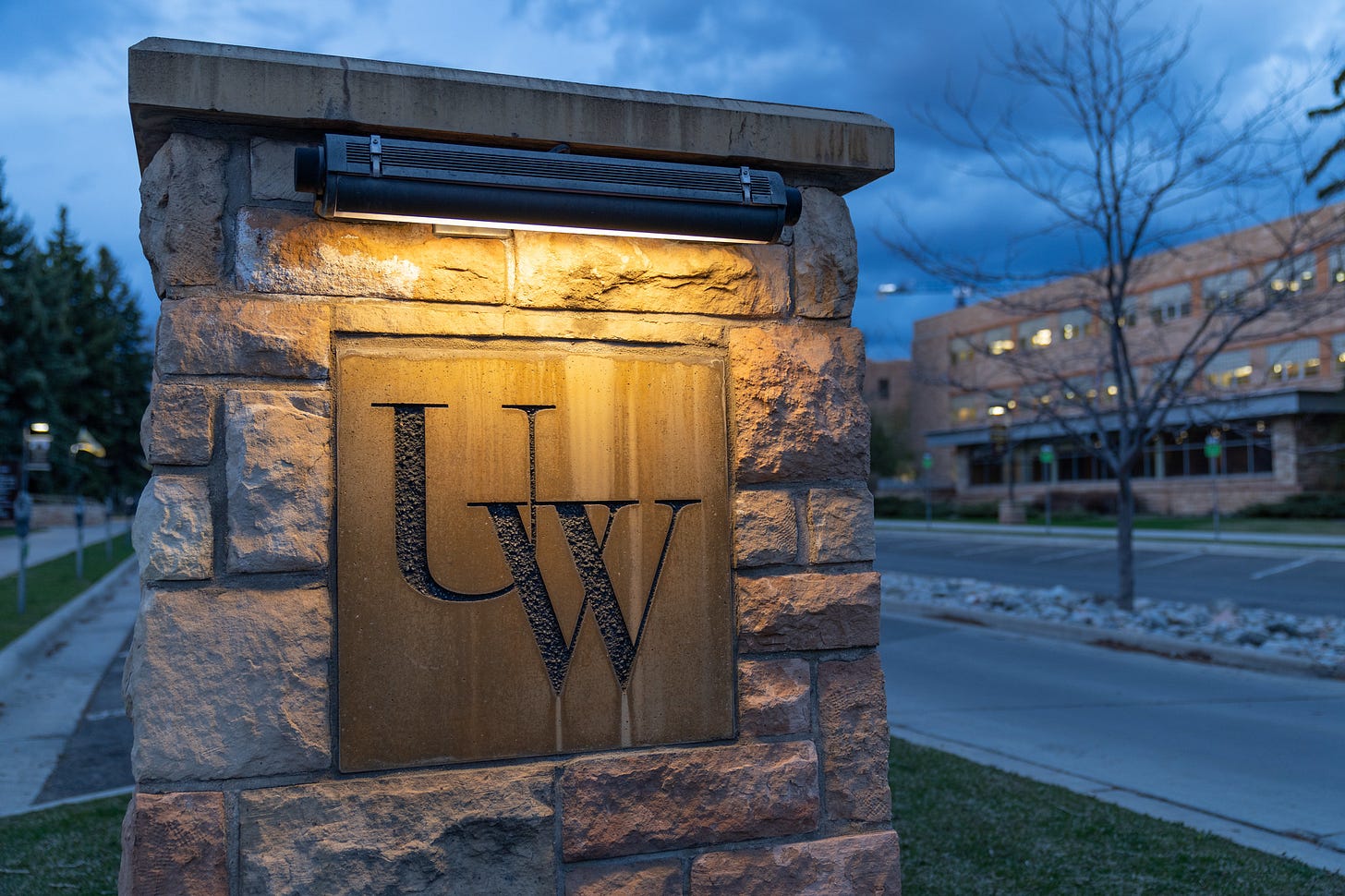Lab school legislation divides Laramie
As Senate File 126 heads to the House floor, local legislators, school district leaders and lab school community members debate online and off about the choice school’s funding and future.
The fate of the University of Wyoming Lab School now depends on a proposed law that would force UW and the local school district to preserve the storied institution.
The lab school — located on the university campus but administered by Albany County School District No. 1 — is set to close permanently at the end of the current semester.
UW no longer wants to host it; Albany County Schools would rather shutter it entirely than move it off-campus. But Laramie lawmakers want to save the school by mandating a partnership between the university and the district.
As Sen. Chris Rothfuss (SD-9) argued before the House Education Committee last week, the school provides a unique offering for its students while serving a wider state purpose: hands-on training for future Wyoming educators.
“This legislation comes from, honestly, a little bit of conflict that took place with regard to the lab school over the past few years that came to a head recently,” Rothfuss said. “We’re trying to address it with a solution that allows the lab school to continue to be vibrant into the future — and to return to, effectively, its heyday, when it was a high-performing institution on behalf of the State of Wyoming.”
Senate File 126 would establish a governing board of district, educator, university and parent representatives to operate the lab school as an independent on-campus charter school under the umbrella of Albany County Schools.
“Its mission would be to promote developmentally appropriate, differentiated instruction that is modeled learner-centered for students, serve as [a] teacher education institution and educational learning site, and identify best practices for teaching that can be utilized in public schools statewide,” Rothfuss said.
In a session characterized by the overwhelming dominance of a single political faction, the lab school legislation has divided lawmakers every time it has come to a vote.
In the bill’s first official hearing, the Senate Education Committee voted 3-2 to endorse the bill. On the Senate floor, lawmakers voted 18-12 to pass it out of their chamber.
It was then assigned to the House Education Committee, which ultimately delivered a 5-4 vote in the bill’s favor.
The House is likely to consider the bill this week, giving most members of that chamber their first opportunity to stake out a position on the future of the lab school.
Laramie voices dominate House Education hearing
Opponents of the bill, including Albany County School Board trustees, have generally advocated for local control, arguing the state should defer to the decisions already made by the university and by the local school board.
“The government that functions best is the government that is closest to the people,” Albany County Schools Superintendent John Goldhardt told the House Education Committee. “This is a local control issue. Passing this bill opens a very slippery slope of state government usurping the decisions made by elected board members to insert themselves into the workings of local control.”
UW also opposes the legislation. Lobbying on the university’s behalf, Vice President for Governmental Affairs Mike Smith told the committee the lab school “isn’t necessary” anymore.
“Let our College of Education focus statewide and work statewide,” he said. “Not with a single school in a building from the 1950s serving one subset of one community that is facing declining enrollment.”
These arguments have swayed some legislators.
Worland Rep. Martha Lawley (HD-27), a member of the education committee, said lawmakers face “a very difficult decision” but that she is uncomfortable with the bill.
“What I’m seeing is: we have testimony from the university that they do not want to operate a lab school anymore,” Lawley said. “So we’re seemingly forcing parties — and the district doesn’t want it — but here we’re sort of making them do it. And that bothers me a little bit.”
Supporters of the legislation, including its sponsors, have argued the future of the lab school is important to the state as a whole because of its mandate to test out new educational methods and to provide a training ground for future teachers enrolled in UW’s College of Education.
“The idea of just throwing out a 138-year old institution, instead of fixing it, is the concern I have,” Rothfuss said. “And the university opted to throw it out … From the control standpoint, from the representation standpoint, it is up to us. This is a state institution, and I think we should find a way to fix it.”
The committee heard from alumni, parents and teachers both current and retired who shared their own experiences with the lab school.
Wheatland teacher Julia Crossland said the lab school serves as a crucial stepping stone for aspiring educators as they move from sitting in a classroom to helming one.
“Lab has allowed us to work hands-on with students and try out different teaching styles and observe many more,” she told the committee. “It was also a reality check for many pre-service teachers who, after several years of working towards their degree, found that teaching in a classroom was not for them.”
Crossland said that’s preferable to “entering the workforce and making that discovery while trying to teach students.”
“For others like myself, it was an opportunity to ignite a passion for teaching — and to soak up knowledge like a sponge while I waited anxiously to graduate and to be able to have a classroom of my own,” she said. “Rather than simply watching videos of teachers or trying to remember what it was like to be taught, we are able to gain active experience at the lab school and learn what it meant to be an effective teacher.”
Bradley Rettler, a parent to two lab school students, said his children are often in a classroom with “one teacher and then three to five freshmen or sophomores from the College of Education who had just dropped in.”
Rettler said these university students guide the kindergarten and elementary students in science projects and reading groups or join them for lunch and recess.
“These are future teachers who are not yet going up for student teaching, but who just want some experience in the classroom,” he said.
As an associate professor, Rettler said he’s spoken with many education majors. Most of them, he said, chose UW at least in part because of the lab school, which offered them an on-campus opportunity for real-world observation and early hands-on experience.
“That is keeping our Wyoming students in the state and then sending them back out into the state for student teaching and sending them back out in the state to teach,” Rettler said. “The lab school is one of the things that keeps them in the state.”
The pro-lab school testimony made a dent.
Sheridan Rep. Tom Kelly (HD-30), for example, said he was “on the fence” about the legislation, but ultimately voted to advance the bill because it “deserves its time in the House.”
“The groundswell of support I’ve seen to maintain and to reinvent the lab school is not like anything I’ve seen on any issue,” the freshman representative said. “As we get hundreds of emails for and against everything, this has been very, very one-sided from the public. So the issue I think we’re looking at here is a groundswell of public support and voter support for an institution they love that has been falling apart.”
The committee voted 5-4 to advance the legislation. Rep. Ocean Andrew (HD-46) — Albany County’s only representative on the House side of the education committee and a co-sponsor of the bill — voted in favor.
But debates about the lab school preceded the current session — and they persist outside the capitol’s walls.
Rothfuss takes debate online
Rothfuss published a letter on Facebook Thursday “addressing misinformation” about what the lab school’s closure or continued operation would mean for the budget of Albany County School District No. 1.
The post garnered responses from School Board Chair Beth Bear and a district administrator who both oppose Rothfuss’ legislation. The post also drew the attention of the bill’s supporters, like lab school alum Sylvia-Grace Fonfara, a former candidate for school board who ran, in part, on saving the school and who continues to lead the charge.
One of the chief disagreements between those who support SF126 and those who oppose it is the matter of the district’s funding.
When the district board voted to close the lab school, trustees said the lab’s resources could be redistributed, alongside its students, to other schools in the district. Stretching these resources over fewer locations could result in savings to the district, they argued. School officials have since argued that keeping the lab school open would be so devastating to the district’s budget it could necessitate layoffs.
In his letter, Rothfuss alleges this misrepresents how education funding is distributed.
“If the Lab School were to close, ACSD1 would not keep the full $3 million in funding currently allocated to the school,” he writes. “Instead, only $2.2 million would remain in the district, resulting in a net funding loss of $800,000 per year. This happens because school funding includes fixed costs that do not transfer to other school districts when a school closes.”
The three-page letter digs even further into the details.
In the comments below Rothfuss’ post, Bear requested the lawmaker send his letter to the school board directly.
“I think it’s important to understand there is another side to this,” Bear writes, noting that she is not commenting on behalf of the board. “By legislating a partnership between ACSD#1 and UW that mandates this school, it will force us to prioritize the Lab School for funding and resources above all other local schools, which has significant negative impacts for the 3,700 students in our district.”
Bear reiterated that the board intends to “take the amazing things that had been taught at the Lab School and provide those opportunities to all students in our entire district.” She added the district, like Wyoming, maintains “a steadfast commitment to preparing preservice teachers which is not dependent on the operation of a Lab School in our district.”
“Lastly, this sets a dangerous precedent for local school districts in our state,” Bear writes. “I view this as a matter of local control with the decision to move or close a school resting with our locally elected school board, not with our Legislature. Our community has elected us and entrusted us with these decisions, and we do so with input from our community and with the best interest of all students and educators at heart.”
Fonfara pushed back on these points.
“Please explain how this bill forces you to prioritize the Lab School in a different manner than you were previously,” she wrote. “Also, please explain what the plan so far is for implementing the Lab School’s best qualities across the district is. If that was the rationale for closing the school, I would hope these discussions were happening prior to your vote.”
Bear did not address these concerns point by point, but highlighted the school board’s efforts to involve the community throughout the discussion and decision-making process.
The board hosted three listening sessions and provided several opportunities for public feedback. Though it heard from many lab school advocates, it ultimately voted to shutter the school.
“My job as a school board trustee is not to do what every person asks of us,” Bear writes. “My job is to listen to what our community wants and needs and to use that and the facts and information I know about our district, to do what’s best for the district as a whole. Just because the decision made by the Board isn’t one everyone agrees with, doesn’t mean people were not listened to or included in the process. It means I took a lot of things into account and made a decision I think is best.”
The school board hosts work sessions on the first Wednesday of each month and regular meetings on the second Wednesday. Its next meeting, a work session, is scheduled for March 5.








More great reporting, Jeff. Thank you for presenting all the perspectives of this issue. We need to clone you so every part of Wyoming can have this quality of reporting.
I want to reiterate my concerns about questions not being directly, clearly answered in public settings by ACSD1. This is ultimately why I ran for the Board of Trustees, and why I plan to do so again. This is a trend that goes beyond the Lab School, and it directly interferes with the district's understanding of the community they serve. This deficiency was expressed to me by virtually everyone I spoke with while campaigning, and I hope to see working with the public to address this need be more of a priority going forward!